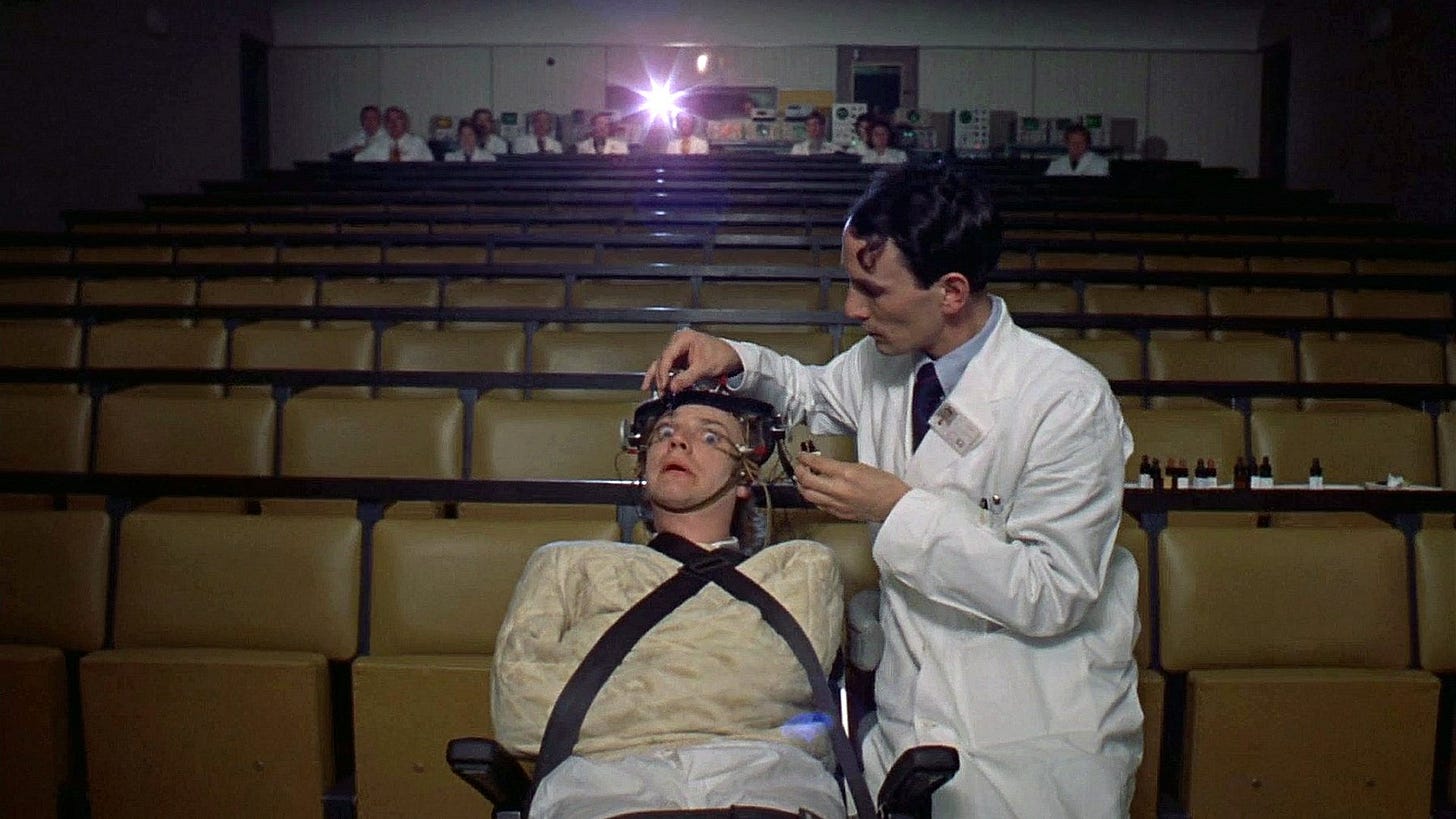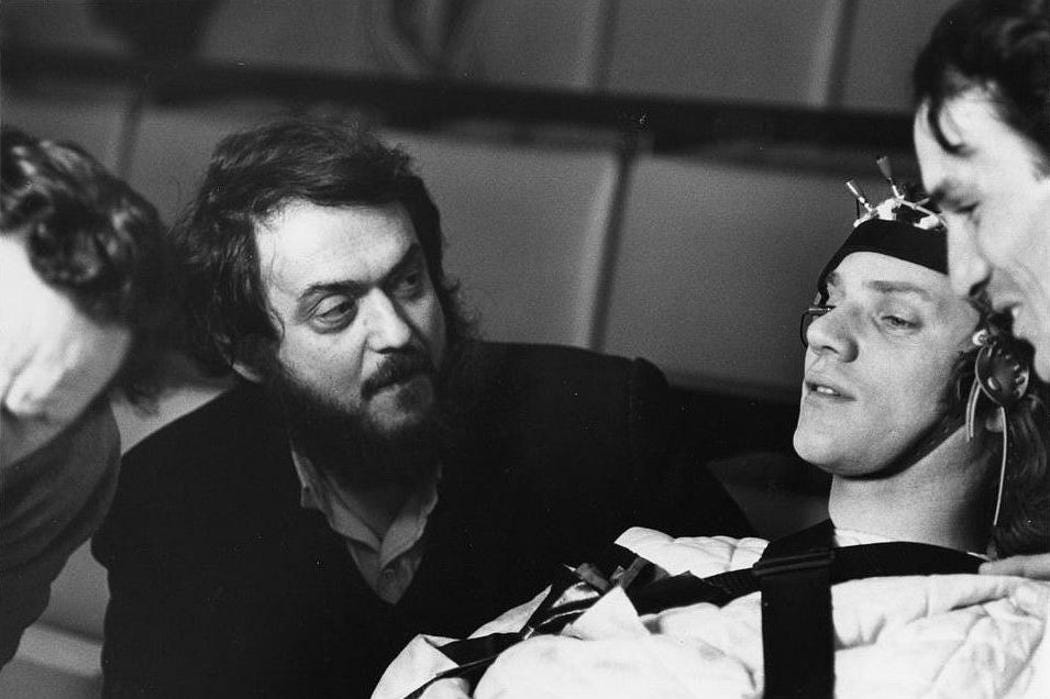I remember being 19, studying abnormal psychology in class, when in one of the forums online I came across this film as a necessary viewing for us all psychology students. Stanley Kubrick’s A Clockwork Orange is a hauntingly provocative film, adapted from Anthony Burgess’s 1962 novel, the film explores themes of free will, nature vs nurture debate, reformation, societal control and the dark recesses of human nature. Of the 11 adaptations that Stanley Kubrick worked on in his career, this is the most faithful to its source material.
The film follows Alex DeLarge (Malcolm McDowell), a young delinquent who leads a gang in a near-future Britain. His nights are filled with acts of violence, theft, and sexual assault, all set to his favorite classical music, most notably, Beethoven’s 9th Symphony. McDowell’s performance is electrifying and disarming, blending charm with chilling sadism. What I find astonishing is Kubrick's meticulous attention to detail—whether in the set design, costume choices, or cinematography— he builds a world that feels alien yet alarmingly familiar.
A Clockwork Orange was notoriously controversial upon release, particularly surrounding its depiction of sexual violence. It was even banned from theatres in several countries, including the UK, where Kubrick himself requested its withdrawal after receiving death threats. Some viewers have criticized the film for glamorizing brutality, while others argue that its shocking content is essential to its critique of desensitization and moral decay. Kubrick intentionally blurred these lines, creating a work that is as much about audience complicity as it is about its characters. Over the years, it has gained a cult following and is widely regarded as one of Kubrick’s definitive masterpieces.





